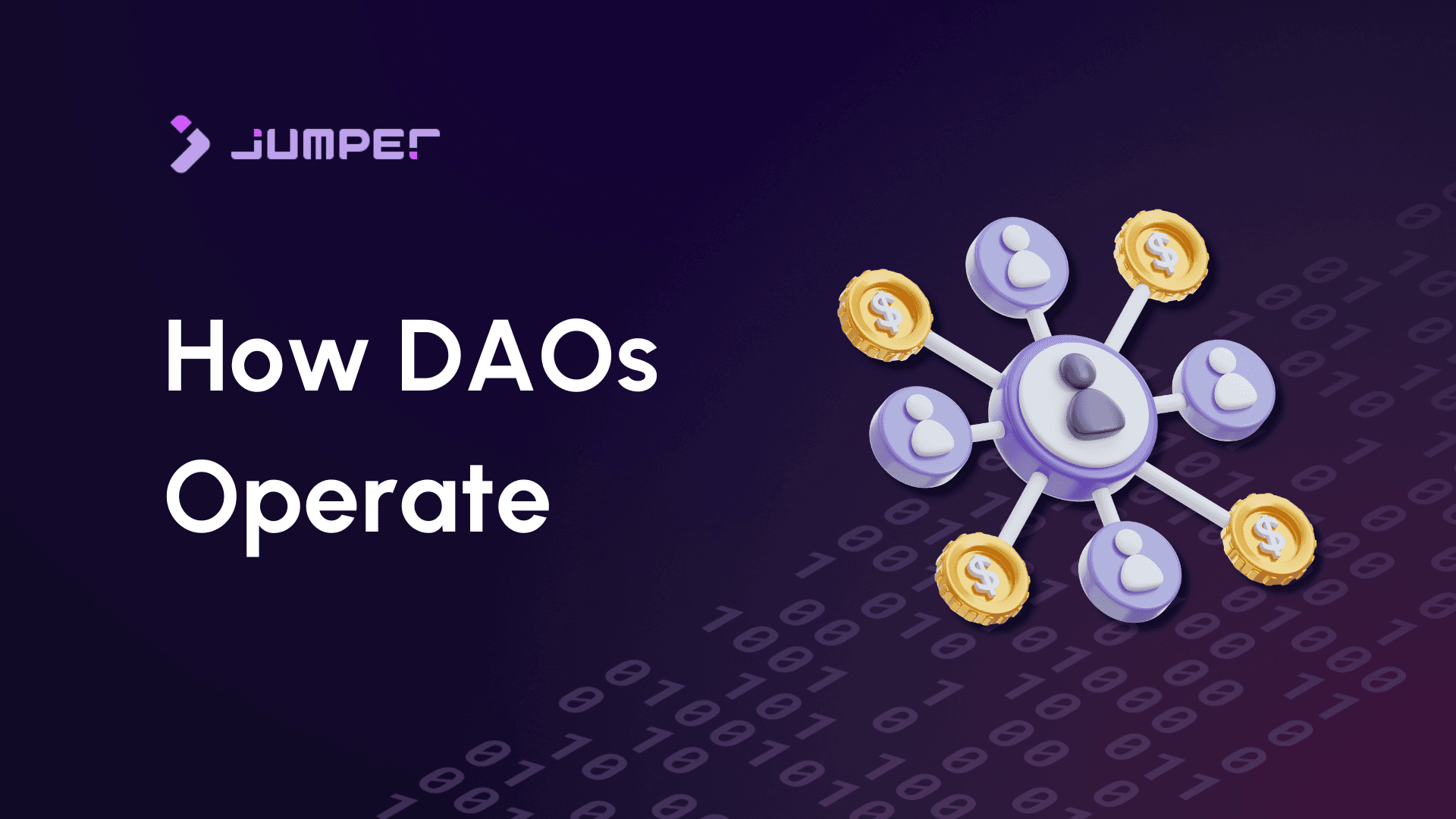Decentralized Autonomous Organizations: How DAOs Operate
Explore how DAOs revolutionize governance with transparency, democracy, and smart contract automation.

Decentralized Autonomous Organizations (DAOs)
have revolutionized governance in blockchain technology, offering transparency, democracy, and efficiency in decision-making. DAOs eliminate central authorities by relying on smart contracts and community voting, creating an autonomous and decentralized system. For a foundational understanding, explore
Coinbase's guide on DAOsor delve into
Investopedia's explanation.
What Are Decentralized Autonomous Organizations (DAOs)?
Core Definition
DAOs are member-governed organizations operating on blockchain networks. They use smart contracts to automate governance and enforce decisions based on pre-set rules. The lack of intermediaries ensures cost-effectiveness and trustworthiness.
Key Characteristics
- Decentralized Governance: Decisions are made collectively by token holders.
- Smart Contract Automation: Rules and processes are encoded in blockchain-based contracts.
- Transparency: All actions and decisions are recorded and visible on the blockchain.
How Do DAOs Operate?
Smart Contracts as the Foundation
Smart contracts form the backbone of DAOs, automating tasks such as proposal evaluation, voting, and fund allocation. They ensure decisions align with predetermined protocols.
Token-Based Voting
Members hold governance tokens, which they use to vote on proposals. Each token represents a vote, emphasizing democratic participation.
Treasury Management
DAOs typically manage a treasury funded by members or external investments. Decisions on fund allocation are transparent and driven by community consensus.
Who Participates in DAOs and How Are Decisions Made?
DAO members include:
- Developers: Build and maintain smart contracts and infrastructure.
- Token Holders: Hold governance tokens and vote on proposals.
- Investors and Stakeholders: Fund projects and participate in governance.
Decisions are made through proposals submitted by members. After voting, smart contracts automatically execute approved actions.
TechTarget’s explanationprovides a deeper dive into DAO participation.
How Do DAOs Manage Funding and Resource Allocation?
Treasury Governance
DAOs manage collective treasuries funded by:
- Token sales
- External investments
- Donations
Decisions on resource allocation are transparent, with community oversight ensuring responsible fund management. Proposals are put to a vote, and smart contracts allocate resources accordingly. Explore treasury management in DAOs at
Chainalysis.
Where Are DAOs Being Used Across Different Industries?
DAOs have applications in various sectors, including:
- Decentralized Finance (DeFi): Protocol governance for projects like Uniswap and Aave.
- Philanthropy: DAOs streamline charitable fund allocation, ensuring transparency.
- Creative Industries: DAOs like PleasrDAO fund and govern digital art projects.
- Gaming: Game-focused DAOs create player-driven ecosystems.
The Benefits and Challenges of DAOs
Benefits
- Transparency: All activities are verifiable on the blockchain.
- Community Engagement: Members have direct control over decisions.
- Reduced Costs: Automation minimizes administrative expenses.
Challenges
- Scalability Issues: Managing large communities can become complex.
- Security Risks: Vulnerabilities in smart contracts may lead to hacks.
- Decision-Making Delays: Reaching consensus can be time-consuming.
Jumper Exchange: Enhancing DAO Operations
DAOs operating across multiple blockchains require seamless cross-chain functionality, which
Jumper Exchangeprovides. Jumper simplifies token swaps, fund transfers, and asset management by integrating liquidity sources across blockchains.
Jumper’s Role in DAO Efficiency
- Streamlined Treasury Management: Supports cross-chain treasury activities.
- Transparent Transactions: Provides real-time transaction tracking.
- Cost Efficiency: Reduces operational overhead for multi-chain operations.
Use Cases of DAOs
Investment Management
Platforms like DAOs allow members to pool funds and collectively decide on investments.
Decentralized Protocol Governance
DAOs govern decentralized protocols by voting on upgrades and operational strategies.
Philanthropy
DAOs streamline charitable activities, ensuring transparency in fund allocation.
The Future of DAOs
DAOs are poised to revolutionize industries beyond finance, including healthcare, education, and supply chain management. However, overcoming scalability and regulatory challenges remains essential for widespread adoption.
is integral to this evolution, enabling DAOs to operate efficiently across multiple blockchain ecosystems.